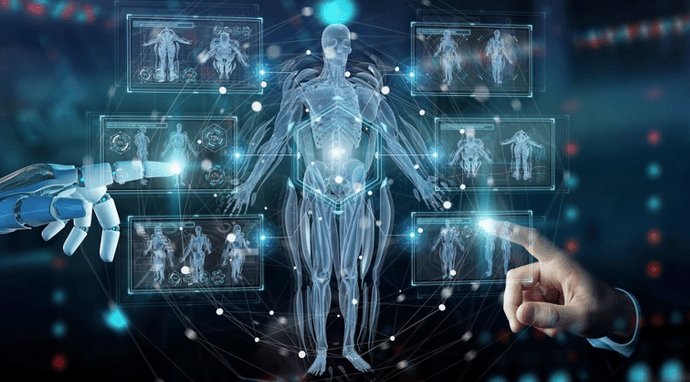
Medical Advancements With AI
Medical advancements with AI have been transformative across various aspects of healthcare. Here are several key areas where AI is making significant contributions:
- Diagnostic Imaging: AI algorithms can analyze medical images such as X-rays, CT scans, and MRIs with high accuracy, aiding radiologists in detecting abnormalities and making diagnoses faster.
- Personalized Treatment: AI can analyze vast amounts of patient data to personalize treatment plans. This includes predicting disease progression, determining optimal drug dosages, and identifying suitable therapies based on genetic profiles.
- Drug Discovery and Development: AI accelerates drug discovery by analyzing molecular interactions, predicting the efficacy of compounds, and identifying potential side effects, thereby reducing the time and cost involved in bringing new drugs to market.
- Robot-Assisted Surgery: AI-powered robots assist surgeons during complex procedures, enhancing precision and reducing recovery times. These systems can analyze data in real-time to guide surgical instruments with sub-millimeter accuracy.
- Virtual Health Assistants: AI-driven virtual health assistants and chatbots provide patients with personalized medical advice, monitor chronic conditions, and offer support for mental health issues, improving access to healthcare services.
- Predictive Analytics: AI models analyze electronic health records (EHRs) and wearable sensor data to predict patient outcomes, such as identifying individuals at risk of developing certain diseases or complications.
- Administrative Workflow: AI automates administrative tasks in healthcare settings, such as scheduling appointments, billing, and managing medical records, which helps reduce errors and streamline operations.
- Remote Monitoring: AI-enabled devices and wearables monitor patients remotely, collecting continuous data on vital signs and alerting healthcare providers to potential issues, enhancing the management of chronic conditions and post-operative care.
- Medical Research: AI analyzes vast datasets from clinical trials and research studies to uncover patterns and insights that may lead to new medical discoveries and advancements in understanding diseases.
- Ethical Considerations: As AI continues to evolve in healthcare, ethical considerations around patient privacy, data security, algorithm biases, and the role of human oversight remain critical areas of discussion and development.
These advancements illustrate how AI is revolutionizing healthcare by improving efficiency, accuracy, and patient outcomes across various medical domains.
TAGS Health
